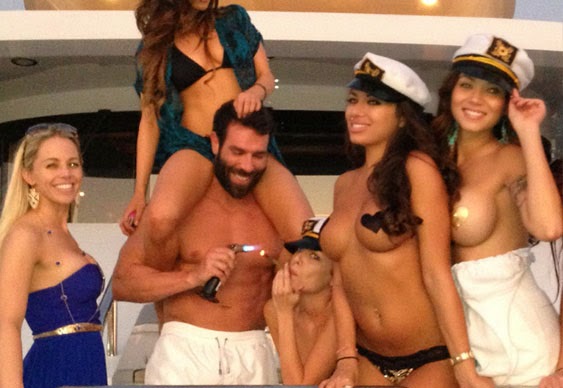Continued from last post . . . Can you really spoil a philosophy book? I don’t think so. Laying out a basic account of the four most important concepts at the foundational level of the philosophy in my next book, Ecology, Ethics, and the Future of Humanity in a few hundred words instead of the 7000 word chapter amounts to a preview, if anything.
The most radical idea in my manuscript, as far as the discipline of philosophy is concerned, is that the domains of ontology and ethics in philosophical knowledge are inextricably intertwined. They’re usually treated as separate domains, the most separate two domains can be. Remember David Hume’s formula, taken as obvious throughout philosophy: you can’t derive an ‘ought’ from an ‘is,’ or vice versa. Statements of what is true and statements of what is morally or ethically right can have nothing to do with each other.
And while that’s true for arguments, it’s not true for how personalities and self-conceptions are formed. Remember from yesterday that philosophy is about creating concepts that fundamentally revise what it means to be human. That’s an ethical matter: how we live, which is determined by what we think we are. That latter question depends on ontology, our conceptions of what the universe is and our place in it. So ontological questions are the ground of our ethics.
 |
| Every ecosystem is a complex process in constant flux. |
So the foundation of our ethics is what we believe about the world. If we want to live in a more ecologically-friendly way, we have to think more ecologically. That means paying attention to the interdependence of all bodies and systems, and understanding reality as constant flux. A process philosophy where singularity arises from links and relations.
Weird Concept One. Everything that exists is an ongoing process. Stability isn’t absolute, but a matter of very slow change. So when we think about what could be a part of one body or system, the part doesn’t necessarily exist simultaneously with all the other parts. Part of a process can appear and disappear, while the process itself continues.
Weird Concept Two. A physical body, as we typically think of it, has a clear boundary separating inside from outside. But the boundary of a process is porous, pragmatically defined at best. So you can consider a particular process and any environmental conditions that shape how it appears and develops as part of a larger process of generation and decay.
Weird Concept Three. Everything being a process that are all linked together as conditions and products of larger processes is a very holist view of existence. Ultimately, there’s only one process: the generation and decay of the entire universe. But this largest-scale unity doesn’t overwrite the singularity and uniqueness of all the particulars at smaller scales. Multiplicity survives the unification of connection.
Weird Concept Four. There are no primitively simple bodies, nothing that would have an identify solely in itself that was not somehow constituted by relations and interactions. Even elementary particles are only abstractions. Calling a quark or a photon a particle is a hangover from old-fashioned ontology concepts in equally old-fashioned physics. At the most fundamental level, reality is fields interacting and fluctuating. These fields of matter/energy are processes with porous boundaries whose interactions link them and make their states of being depend on each other.
At all levels of analysis, we are ultimately dynamic fields whose identities and features depend on our mutual interaction.
These concepts are only weird if you aren’t accustomed to thinking about the world as a process. I’ve been thinking about the world this way since about 2010 when the basic ideas of what I’ve been calling the Ecophilosophy manuscript, and what is now Ecology, Ethics, and the Future of Humanity, came together in my research.
Yet while I still read philosophy, politics, and science, and write works of fiction and philosophy that are informed by what I read, I’ve left the university sector behind. And I sometimes worry that my writing work will interfere with my attempt to build my new career in the communications sector. But I’m still hopeful for my own future. To be continued . . .



















